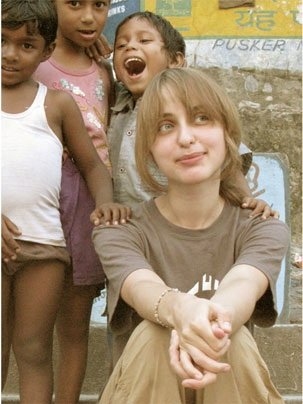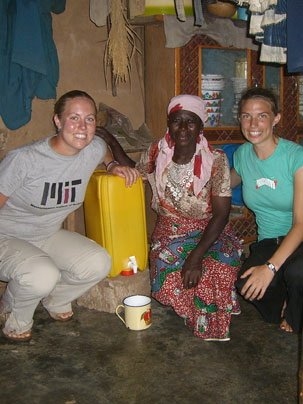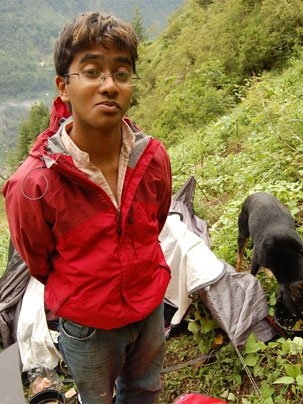The Legatum Center for Development and Entrepreneurship at the Massachusetts Institute of Technology (MIT) is pleased to announce the recipients of its 2008-2009 seed grant program.
Teams of students from across the Institute submitted proposals for innovative projects on renewable energy, health, water, biotechnology, mobile services and a host of other promising enterprise solutions to development challenges in low-income countries. Of the 32 proposals received, 13 grantees were selected by the Legatum Center to receive funding.
Teams will use these grants to fund market research, project scoping, and pilot studies during MIT's 2009 Independent Activities Period (IAP).
"MIT students are full of creative ideas. This is a way of harnessing and advancing some of these ideas towards our goal of promoting bottom-up development in low-income countries," said Legatum Center Founder and Director Iqbal Z. Quadir.
"These grants are meant to both recognize and propel MIT students who are applying their innovation and entrepreneurialism to improving the lives of ordinary citizens in low-income countries," said Michael F. Maltese, managing director of the Legatum Center.
Grantees chosen through the competitive selection process range in industry and geographical focus.
Alexander Sappok, CEO of Filter Sensing Technologies, won a grant for his work on an inexpensive fuel quality sensor that will increase availability of clean renewable fuels in low-income countries. "The Legatum IAP Seed Grant will enable the development and demonstration of a prototype system, as well as research into the most effective paths to market in these countries," Sappok said.
Sarina Siddhanti's student-team will use its grant to explore micro-equity development in Mexico. "Our project explores the possibility of micro-equity as a source of financing entrepreneurs in developing countries," Siddhanti said. "The Legatum IAP Seed Grant will be essential in enabling us to travel to Mexico and begin the preliminary field analysis for our model."
With his grant, Joseph Mugisha Mushoka plans to found a software company that leverages open-source databases to provide record management systems for insurance companies in Africa. "The Legatum IAP grant will enable me to identify five insurance companies in Kenya that I can learn from and develop the initial product," he said.
The Legatum Center's seed grants have been made possible through the generous support of MIT alumnus Jack Hennessy, who was previously a board member of the MIT Corporation, the chairman and CEO of Credit Suisse First Boston, and assistant secretary of the U.S. Treasury.
Founded in 2007 by Quadir, the Legatum Center is based on the belief that economic development and good governance in low-income countries emerge from entrepreneurship and innovations that empower ordinary citizens.
Below is the list of the 2008-2009 Legatum Center seed grant recipients:
Biogas (Nicaragua)
Team Members: Rimi Chakraborty, Chris Tostado, Rob Crawford, Elizabeth McVay Greene, Cenk Alperdem, Alex Rosemblat, Jeremy Bratt
Project: Introduction of unique triple-phase biodigester. This innovative technology will provide a more efficient, environmentally-friendly, and affordable fuel solution for rural farmers.
Bioprospecting (Ecuador)
Team Members: Alex Robertson, Christoph Engert
Project: Scientific exploration and analysis of Ecuador's unique biodiversity for useful functions such as antibiotic resistance and thermostability. Intellectual property from these findings will be commercialized.
Bio-Volt Fuel Cells (Developing nations)
Team Members: Ethan Crumlin, G.J. la O', Joseph Walish
Project: Renewable energy project focused on the development of microbial fuel cell (MFC) technology. Will provide clean and low-cost electricity for basic lighting and cell phone battery charging in developing nations.
Camera for Us (India)
Team Members: Anna Kotova, Arka Prava Dhar
Project: Empowering children in India through photography. By putting cameras into the hands of India's most underprivileged children and sharing their photos with the rest of the world, Camera for Us hopes to inspire change by opening eyes to the realities of poverty.
Community Water Solutions [CWS] (Ghana)
Team Members: Kate Clopeck, Mike Brown, Vanessa Green, Chuck Howe
Project: Implementation of a commercially viable and transferable model for sustainable community-level water treatment in Ghana. From water treatment training to actual treatment and distribution, the CWS model will simplify access to, and improve quality of clean drinking water.
Emerge Tanzania (Tanzania)
Team Members: Hattie Chung, Meghan McCullough
Project: Empowerment of women in Tanzania who are suffering from clinical depression through skill-building workshops and the fostering of support networks. Through the skill-building workshops, women will create arts and crafts that can then be brought to the marketplace.
Malawi Bio-Fuels (Malawi)
Team Members: Andre Thomas, Clinton Blackburn, Prarthna Desai, Arjun Mehta, Greg Snyders, Ernest Kwan
Project: Creation of sustainable micro-enterprise models focused on the emerging biofuel market in Malawi. Aims to innovate around issues of high-energy costs and lack of access to electricity.
Micro-Equity Development Fund (Mexico)
Team Members: Sarina Siddhanti, Manvi Goel
Project: Development of a new micro-equity model for microfinance. Model aims to increase opportunities for business growth of low-income entrepreneurs in Mexico and align investor-entrepreneur incentives.
Renewable Fuel Quality Detector for the Developing World (Developing nations)
Team Members: Alexander Sappok
Project: Development of hand-held fuel quality and composition sensors made from inexpensive and locally accessible materials. Product intends to solve the problems of engine failures associated with poor fuel quality.
Software Solutions for Insurance Companies (Kenya)
Team Members: Joseph Mugisha Mushoka
Project: Creation of new, more efficient computer software for insurance companies in Kenya. This technology will allow insurance companies to operate more efficiently, thus lowering costs and improving opportunities for access to services.
Solar Cell Modules for Auto Rickshaw Pollution Reduction (India)
Team Members: Vidya Ganapati, Jean Theurer
Project: Creation of unique solar cell modules that can be mounted onto auto rickshaws for the purpose of decreasing fuel consumption. Strives to address problems of air pollution in India.
Sustainable Health Enterprises [SHE] Innovates (Rwanda)
Team Members: Bernice Liying Huang, Hannah Poole, Elizabeth Scharpf, Sumi Sinha, Sam O'Keefe, Kimi Ceridon
Project: Development of affordable sanitary napkins for impoverished women in developing countries. SHE aims to develop female-led manufacturing cooperatives that will use local materials to produce the products and provide local women with income-generating sales opportunities.
Vismate: Enriching Mobile Phone Conversations for Business Efficiency (Rural China and India)
Team Members: Winnie Cheng, Manas Mittal
Project: Development of mobile phone software system for business transactions. System technology will increase opportunities for client-customer interaction over the phone.
About the Legatum Center
The Legatum Center for Development and Entrepreneurship at MIT was founded in 2007 with a gift from Legatum, a global investment firm. Led by Iqbal Z. Quadir, founder of GrameenPhone and Emergence BioEnergy, the Center is focused on promoting entrepreneurship in low-income countries. The Center runs a highly competitive fellowship program for incoming or current graduate students at MIT. For more information about the Center and the fellowship, please visit our website: http://legatum.mit.edu.
A version of this article appeared in MIT Tech Talk on December 17, 2008 (download PDF).








